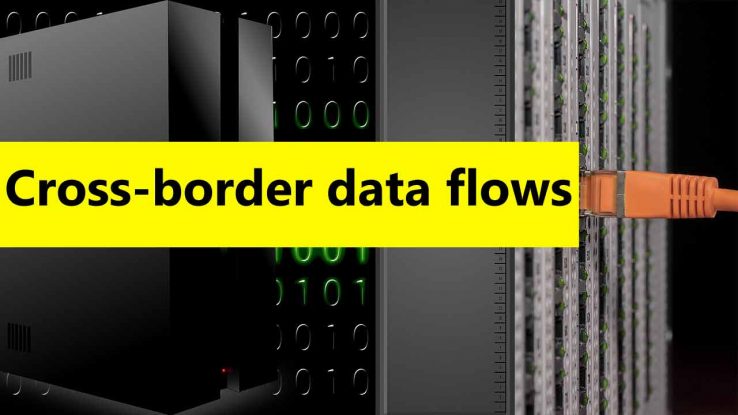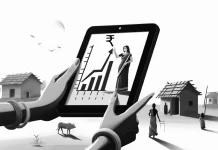

Cross-border data flows refers to the movement or transfer of information between servers across country borders. Data needs to be able move freely so that no matter where you are, you have access to the information and services you need (whether you're a person or a business). Data service providers don't build data centers in every city or even every country. Instead, centers are built in locations where it makes the most sense – where they can provide the best service to their customers, where it's most cost-effective, or where the demand for services is highest. Data must cross the country borders between these data centers so that it can be shared and used around the world.
Everyone from individuals to large corporations relies on transferring data. Let's say you're in London on a trip from New York and you go to buy some lunch. If you decide to use your credit card, how does the credit card software know it isn't a fraudulent transaction? Because of data. Your bank's computer back home can analyze the purchase and location, and based on that analysis can allow the purchase or flag it as likely fraud and stop it. All this analysis happens in the split second after you swipe your card and the transaction goes through.
We take using credit cards overseas for granted, but it is one of the many ways cross-border data flows facilitate our everyday lives. The same goes for tracking shipped packages, checking the weather, or buying clothes online (to name a few).
On a broader level, businesses in every industry use data to launch into global markets. Let's say a retail company expands from Portland to Japan and Korea. Thanks to cross-border data flows, the company's headquarters can coordinate with multiple locations to analyze and leverage information about its customers, manage its supply chains, and conduct market research, which keeps the company's brand unified and increases sales.
But the future of cross-border data flows is uncertain. There is no global set of trade rules that clearly states data needs to be able to move freely around the world. Economic incentives and privacy concerns have led some governments to push to restrict data flows, locking data within their borders. We cannot allow this to happen.
We're in the middle of a data revolution. In the past 15 years alone, we've gone from dial-up Internet and desktops to smartphones and cloud computing. Our world is increasingly more connected through the sharing of data with the emergence of artificial intelligence and the Internet of Things. Data must be free to move across borders to continue the growth of the global economy and foster innovation… whether you're buying lunch on vacation or expanding your business, and everything in between.
The author is Vice President, Global Policy with BSA | The Software Alliance. Views are personal.





